Quick Summary
Are you embarking on a mission to find a DevOps engineer who will seamlessly blend the worlds of development and operations? Look no further! In this blog, we’ll take you on an instructive journey in Hiring a DevOps Engineer that will equip you with the information and methods you need to locate the ideal DevOps engineer for your team.
Whether you run a digital startup, a mid-sized business, or an enterprise-level organization, the right DevOps engineer must be hired to achieve effective software delivery and maintain a solid infrastructure. An Offshore DevOps engineer is a multifaceted individual who combines development and operations to ensure adequate software delivery and fluid teamwork.
What Is DevOps?
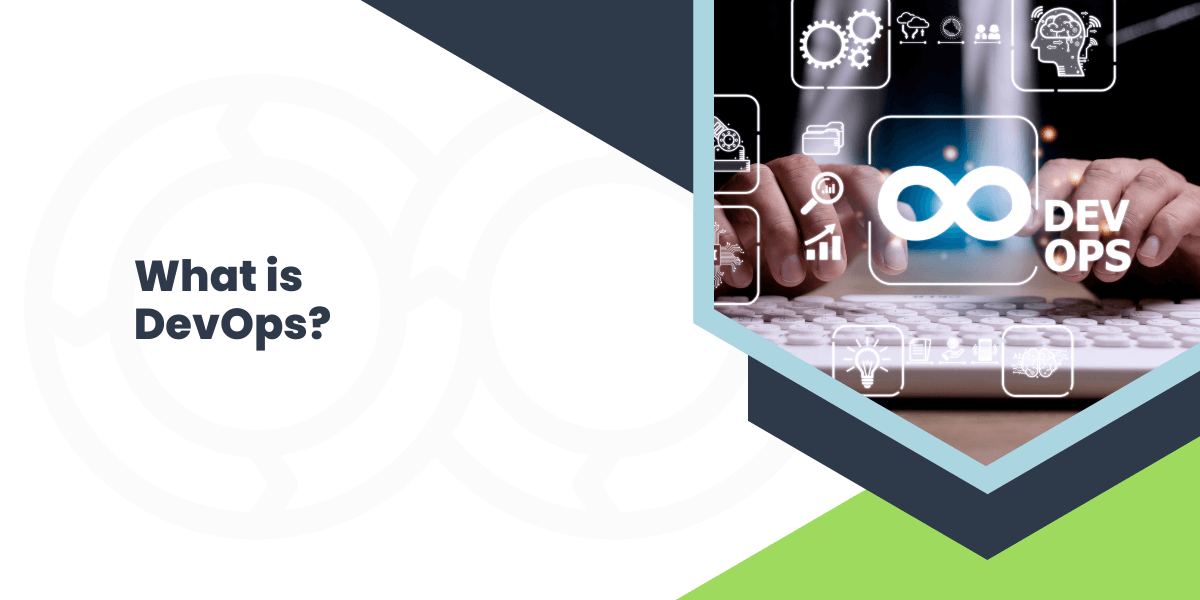
DevOps is a collaborative strategy combining software development procedures (Dev) and IT operations (Ops). It emphasizes seamless communication, collaboration, and the breaking down of silos between development and operations teams. DevOps strives to create a shared responsibility culture where teams collaborate to produce high-quality software more quickly and consistently.
What Are The Skills To Look For In A Devops Engineer?
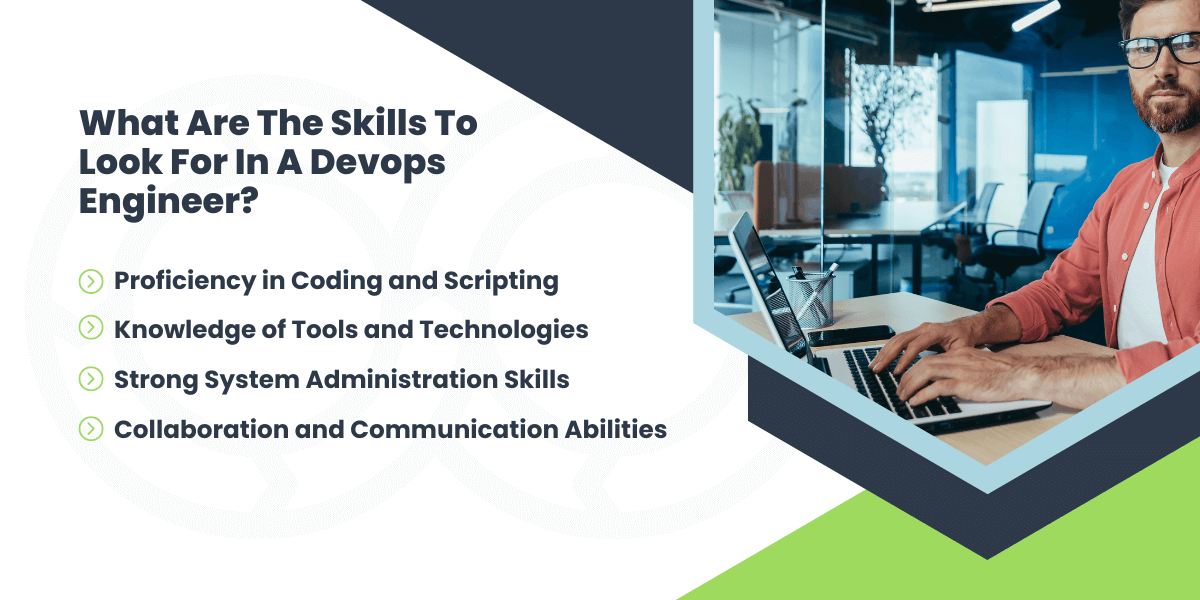
Even though having Android users as 75% of the smartphone market, iOS users are more willing to pay for an app than Android users due to the open-source heritage of Android. The average cost of an iOS app is $2.01 which makes a wide base of paying clients.
1. Proficiency in Coding and Scripting
A proficient DevOps engineer for hire should possess a solid foundation in coding and scripting languages. Here are a few essential languages to look for:
Python
Python is a versatile language widely used in DevOps for automation, configuration management, and scripting tasks.
Bash
Bash scripting is essential for automating routine tasks, managing system configurations, and orchestrating complex processes.
Ruby
Ruby is known for its simplicity and readability, making it an excellent choice for infrastructure automation and web development tasks.
2. Knowledge of Tools and Technologies
A skilled DevOps engineer should be familiar with various tools and technologies that streamline the software delivery pipeline. Some essential tools and technologies to look for include:
Configuration Management Tools
Tools like Ansible and Chef enable infrastructure and application management, deployment, and configuration.
Containerization Technologies
Docker and Kubernetes are popular containerization technologies that allow for efficient packaging, deployment, and scaling of applications.
Continuous Integration/Continuous Delivery (CI/CD) Tools
Familiarity with CI/CD tools like Jenkins or GitLab CI/CD is crucial for automating the software delivery.
Cloud Platforms
Proficiency in cloud platforms such as AWS, Azure, or Google Cloud Platform (GCP) is highly advantageous for managing scalable and resilient infrastructures.
Need Custom App Development Services?
We are the right choice for getting top-level app development solutions be it android, iOS or hybrid app development. Our developers have got the best experience for all.
3. Strong System Administration Skills
DevOps engineers often wear multiple hats, and having strong system administration skills is essential for managing and troubleshooting infrastructure. Look for candidates with knowledge in:
Linux/Unix Administration
Proficiency in Linux/Unix-based systems is crucial for configuring and maintaining servers and managing network services.
Networking
Building a reliable and scalable infrastructure requires having a firm grasp of networking fundamentals, protocols, and security.
Security Best Practices
For the protection of systems and data, it is essential to be knowledgeable about security best practices, such as secure coding, vulnerability screening, and access control.
4. Collaboration and Communication Abilities
In addition to technical skills, a successful DevOps engineer must excel in collaboration and communication. Look for candidates who possess the following:
Strong Interpersonal Skills
DevOps engineers often wear multiple hats, and having strong system administration skills is essential for managing and troubleshooting infrastructure. Look for candidates with knowledge in:
Problem-Solving Skills
A DevOps engineer needs to be able to analyze complicated problems, troubleshoot issues, and come up with creative solutions.
Continuous Learning Mindset
Because DevOps is a subject that is constantly changing, you should seek people who are enthusiastic about continuing their education and staying current with emerging trends and technology.
Where to find DevOps engineer?
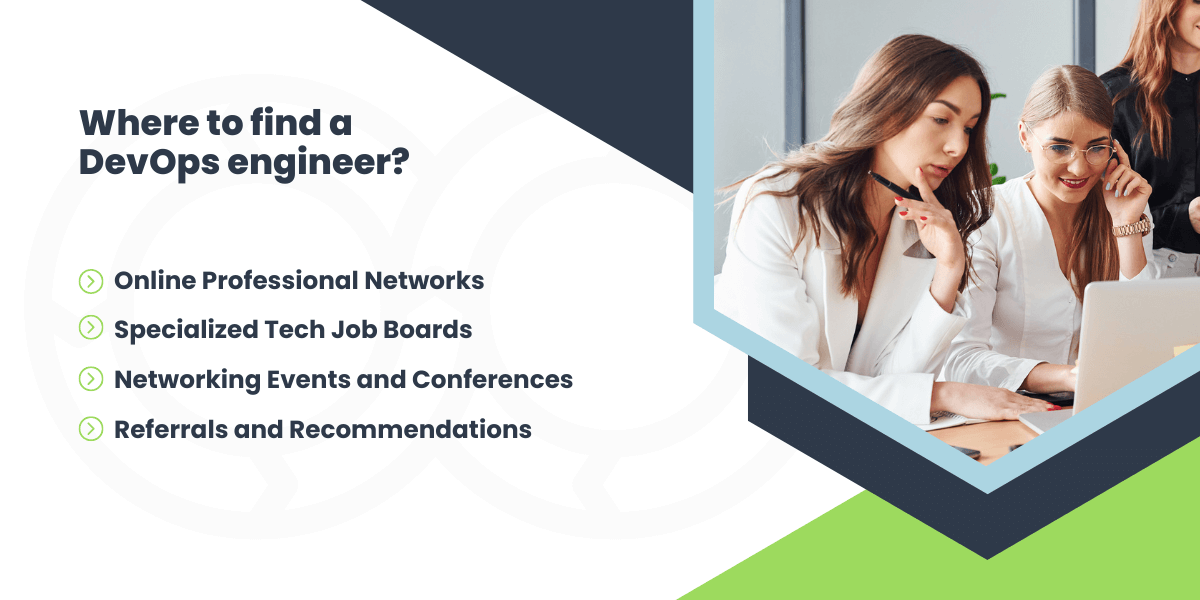
In addition to technical skills, a successful DevOps engineer must excel in collaboration and communication. Look for candidates who possess the following:
1. Online Professional Networks
In addition to technical skills, to hire a DevOps engineer, they must excel in collaboration and communication. Look for candidates who possess the following:
A leading professional networking platform, LinkedIn offers a vast pool of skilled professionals, including DevOps engineers. Utilize its advanced search features and join relevant groups and communities to connect with potential candidates.
GitHub
DevOps engineers often showcase their skills and projects on GitHub, a popular version control and collaboration platform. Browse through repositories and profiles to find individuals who align with your requirements.
Stack Overflow
Known as a developer hub, Stack Overflow can be a valuable resource for hiring DevOps engineers. Explore the site’s tags and profiles, and post specific job listings in the relevant categories.
2. Specialized Tech Job Boards
Dedicated tech job boards provide targeted access to a pool of talent specifically interested in technology roles. Consider the following options:
DevOps.com
DevOps.com offers a specialized job board focused on DevOps positions. Posting your job openings here will ensure visibility among professionals seeking DevOps roles.
Dice
Dice is a popular tech job board that caters to various technology positions, including DevOps. Its vast user base and filtering options can help you identify qualified candidates.
AngelList
If you’re a tech startup, AngelList is an excellent platform to hire a DevOps engineer interested in joining early-stage companies. It connects startups with entrepreneurial talent across various roles.
Also Read:
3. Networking Events and Conferences
Industry events and conferences present unique opportunities to meet and connect with DevOps Programmers. Consider the following avenues:
DevOpsDays
DevOpsDays conferences are held worldwide, providing a platform for DevOps Consulting to share knowledge and network.
Meetup.com
Explore Meetup.com for local DevOps-focused groups and events. Attend meetups, participate in discussions, and build relationships with professionals passionate about DevOps.
Tech Conferences
Keep an eye on technology conferences, such as DevOps Enterprise Summit and DevOps World, where industry experts and thought leaders gather. These conferences often feature job fairs or networking sessions, offering excellent opportunities to connect with talented DevOps professionals.
4. Referrals and Recommendations
Harness the power of referrals and recommendations to find exceptional Remote DevOps Engineer:
Internal Referrals
Leverage your existing network of employees and colleagues to seek referrals for DevOps engineers. Current team members may have connections or know talented professionals in their networks.
Industry Connections
Reach out to industry contacts, such as DevOps Consultants, vendors, or technology partners, and inquire if they can recommend skilled DevOps engineers.
Professional Associations
Explore professional associations and user groups dedicated to DevOps. Engaging with these communities can help you build relationships and receive recommendations for talented individuals.
Want To Get An Estimate Of The Project Cost? Send Us Your Requirements And Get A Free Quote Now!
Hiring Models For DevOps Engineers
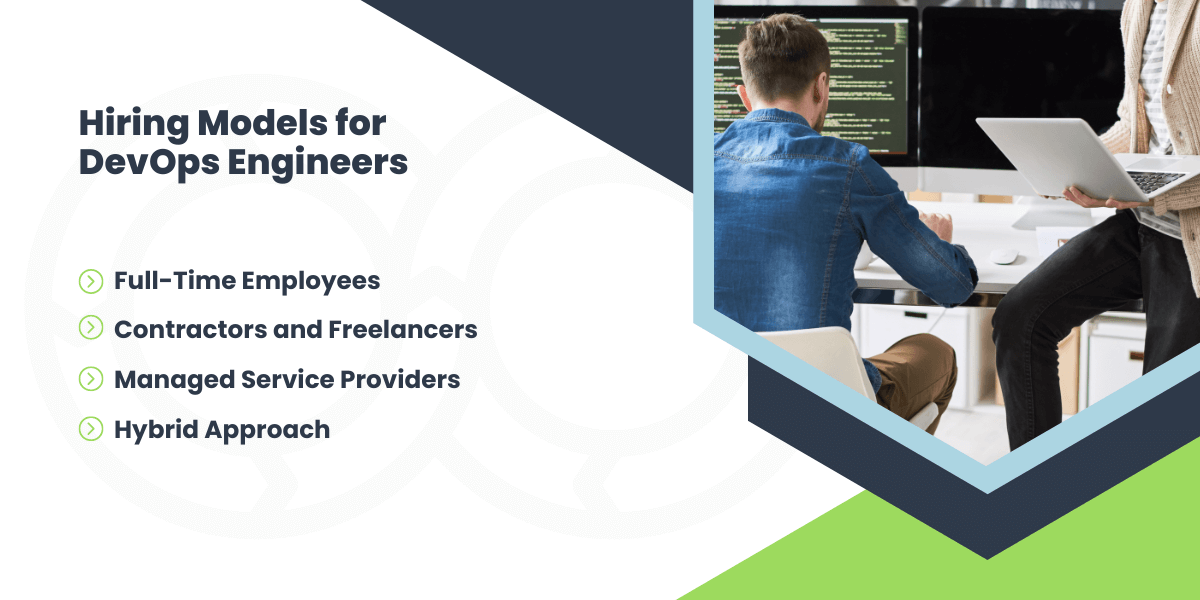
1. Full-Time Employees
Harness the power of referrals and recommendations to find exceptional Remote DevOps Engineer:
Pros
Long-Term Devotion
Hiring DevOps engineers on a full-time basis provides the benefit of a long-term commitment and devotion to the mission and culture of the company.
Seamless Integration
Full-time workers can easily fit in with the company, contributing significantly to cross-functional teams and promoting cooperation.
Cons
Higher Cost
Hiring full-time DevOps engineers comes with additional costs, including salary, benefits, and other overhead expenses.
Limited Flexibility
Full-time employees may have limited availability for short-term or project-specific assignments, impacting resource allocation and scalability.
2. Contractors and Freelancers
Pros
Flexible Engagement
Hiring contractors and freelancers provides flexibility in engagement duration and resource scalability, allowing you to adapt to changing project needs.
Specialized Expertise
Contractors and freelancers often bring technical expertise and diverse industry experiences, offering fresh perspectives to your DevOps initiatives.
Cons
Less Control
Contractors and freelancers work independently, so you may have less control over their work schedule, priorities, and overall availability.
Knowledge Transfer Challenges
As contractors and freelancers work on short-term projects, knowledge transfer and documentation may become critical to ensure continuity.
Hire The Best Developers Who Strive To Deliver Best Value For Your Project
3. Managed Service Providers
Pros
Access to Specialized Teams
Engaging a managed service provider (MSP) grants you access to a team of experienced DevOps engineers with a wide range of skills and expertise.
Reduced Operational Burden
MSPs manage and maintain the DevOps infrastructure, allowing your internal team to focus on core business objectives.
Cons
Dependency on External Provider
Relying on an MSP means you depend on their services, and any issues or delays on their part may directly impact your operations.
Cost Considerations
Engaging an MSP involves financial considerations, and the cost may vary based on the scope and complexity of the services provided.
4. Hybrid Approach
Pros
Best of Both Worlds
By utilizing the strengths of full-time workers, contractors, and managed service providers when required, a hybrid hiring strategy enables you to combine the advantages of several hiring models.
Flexibility and Scalability
A hybrid strategy allows you to scale your DevOps team up or down depending on the project’s demands and the availability of resources.
Cons
Complex Resource Management:
Managing a hybrid team can be more difficult, requiring effective resource allocation, coordination, and communication across hiring models.
Integration Challenges
Integrating different team members from various hiring models may require additional effort to ensure seamless collaboration and alignment.
Why Hire A DevOps Engineer?
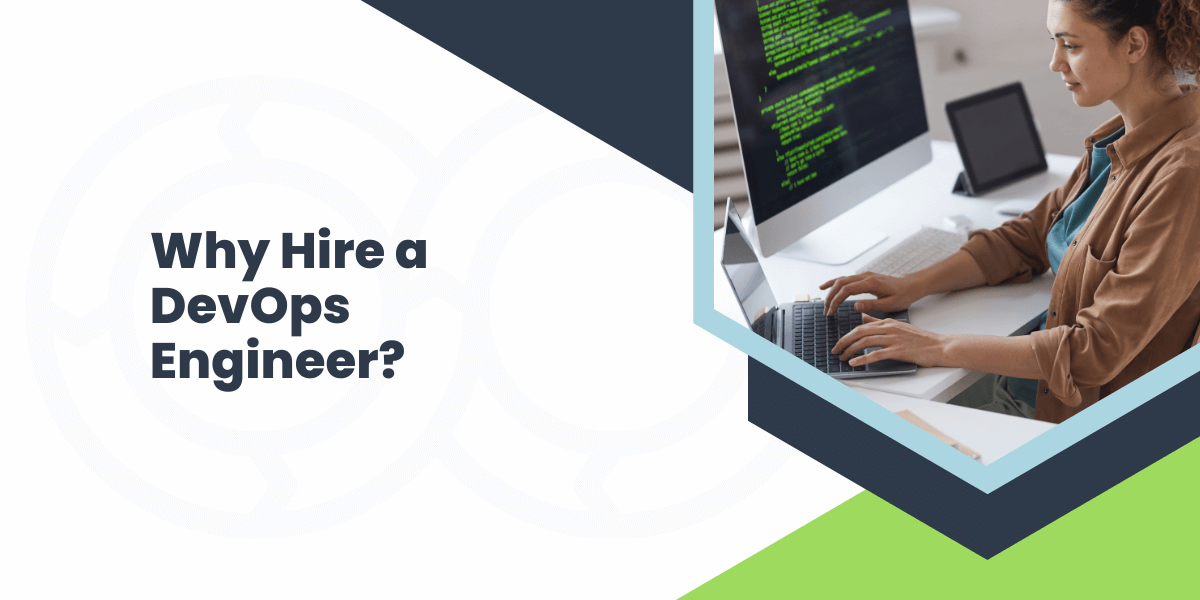
DevOps brings together development and operations teams, fostering collaboration and seamless communication.DevOps practices such as continuous integration, automated testing, and continuous delivery enable faster and more frequent software releases, reducing time-to-market and enhancing competitiveness.
A skilled DevOps engineer bridges development and operations teams, facilitating effective collaboration and communication.DevOps engineers promote a culture of shared responsibility, breaking down silos and encouraging collaboration across groups. They foster cross-functional collaboration and facilitate knowledge sharing, improving productivity and innovation.
Automation lies at the core of DevOps Consulting services, and a skilled DevOps engineer brings expertise in automating manual tasks and infrastructure management.DevOps engineers leverage automation tools to scale infrastructure seamlessly, whether on-premises or in the cloud. This flexibility enables organizations to adapt to changing demands quickly.
The Benefits Of Outsourcing DevOps Engineers
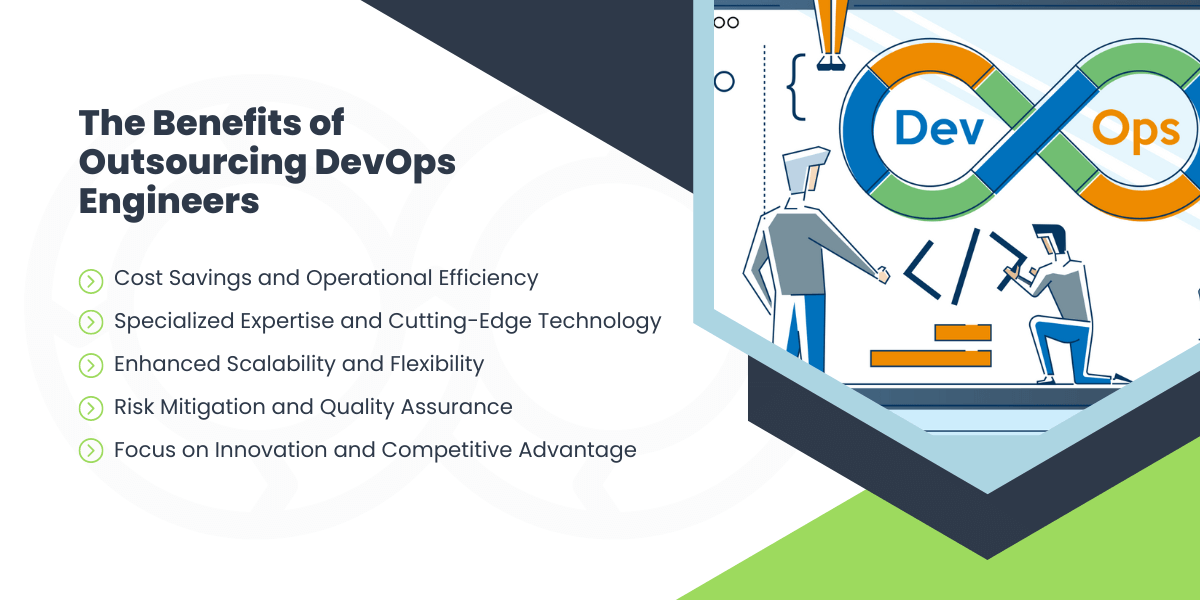
DevOps brings together development and operations teams, fostering collaboration and seamless communication.DevOps practices such as continuous integration, automated testing, and continuous delivery enable faster and more frequent software releases, reducing time-to-market and enhancing competitiveness.
A skilled DevOps engineer bridges development and operations teams, facilitating effective collaboration and communication.DevOps engineers promote a culture of shared responsibility, breaking down silos and encouraging collaboration across groups. They foster cross-functional collaboration and facilitate knowledge sharing, improving productivity and innovation.
Automation lies at the core of DevOps Consulting services, and a skilled DevOps engineer brings expertise in automating manual tasks and infrastructure management.DevOps engineers leverage automation tools to scale infrastructure seamlessly, whether on-premises or in the cloud. This flexibility enables organizations to adapt to changing demands quickly.
1. Cost Savings and Operational Efficiency
Outsourcing DevOps engineers can significantly impact your organization’s cost structure and operational efficiency. Here’s how:
Reduced Hiring and Onboarding Costs
By outsourcing your hiring needs, you can save time, money, and effort on screening, interviewing, and onboarding new workers.
Flexible Resource Allocation
Outsourcing allows you to scale your DevOps team up or down based on project requirements, optimizing resource allocation and reducing overhead costs during downtimes.
Access to Global Talent
Outsourcing opens doors to a global talent pool, enabling you to find highly skilled DevOps engineers at competitive rates, potentially reducing labor costs.
2. Specialized Expertise and Cutting-Edge Technology
When you outsource DevOps engineers, you gain access to specialized expertise and cutting-edge technology that can elevate your organization’s capabilities. Consider the following advantages:
Domain Knowledge and Best Practices
Outsourcing providers often have extensive experience and deep domain knowledge in DevOps practices, allowing you to leverage their expertise and benefit from industry best practices.
Access to Advanced Tools and Technologies
DevOps outsourcing providers stay at the forefront of technological advancements. By collaborating with them, you may gain access to cutting-edge infrastructure, platforms, and tools, ensuring that your DevOps operations are effective, safe, and current.
Focus on Core Competencies
By outsourcing DevOps engineers, you can free up your resources to concentrate on core business goals, enabling you to foster innovation and maintain a competitive edge in your sector.
3. Enhanced Scalability and Flexibility
Outsourcing DevOps engineers offers unparalleled scalability and flexibility for your organization. Here’s how it can benefit you:
Rapid Response to Changing Needs
Outsourcing providers can quickly adapt to your changing requirements, providing additional resources or scaling down the team as needed. This agility allows you to respond promptly to market demands and project fluctuations.
24/7 Support and Coverage
Many outsourcing providers offer round-the-clock support, ensuring uninterrupted services and prompt issue resolution across different time zones.
4. Risk Mitigation and Quality Assurance
Software DevOps Engineers can help mitigate risks and ensure the quality of your DevOps operations. Consider the following advantages:
Compliance and Security Expertise
DevOps outsourcing providers have in-depth knowledge of compliance regulations and security practices, ensuring your operations meet industry standards and protect your data.
Continuous Monitoring and Quality Control
Outsourcing providers implement robust monitoring systems and quality control processes, enabling proactive issue detection, rapid troubleshooting, and ongoing improvements to your DevOps operations.
5. Focus on Innovation and Competitive Advantage
You can leverage external expertise to drive innovation and gain a competitive edge by outsourcing DevOps engineers. Here’s how it can empower your organization:
Collaborative Partnerships
Outsourcing providers often foster collaborative partnerships, working closely with your internal teams to align DevOps strategies with your business objectives and drive innovation.
Knowledge Transfer and Upskilling
Working with outsourced DevOps engineers allows for knowledge transfer and upskilling opportunities within your organization. Your internal team can learn from their expertise, enhancing their skills and capabilities.
What is the Cost of Hiring a DevOps Engineer?
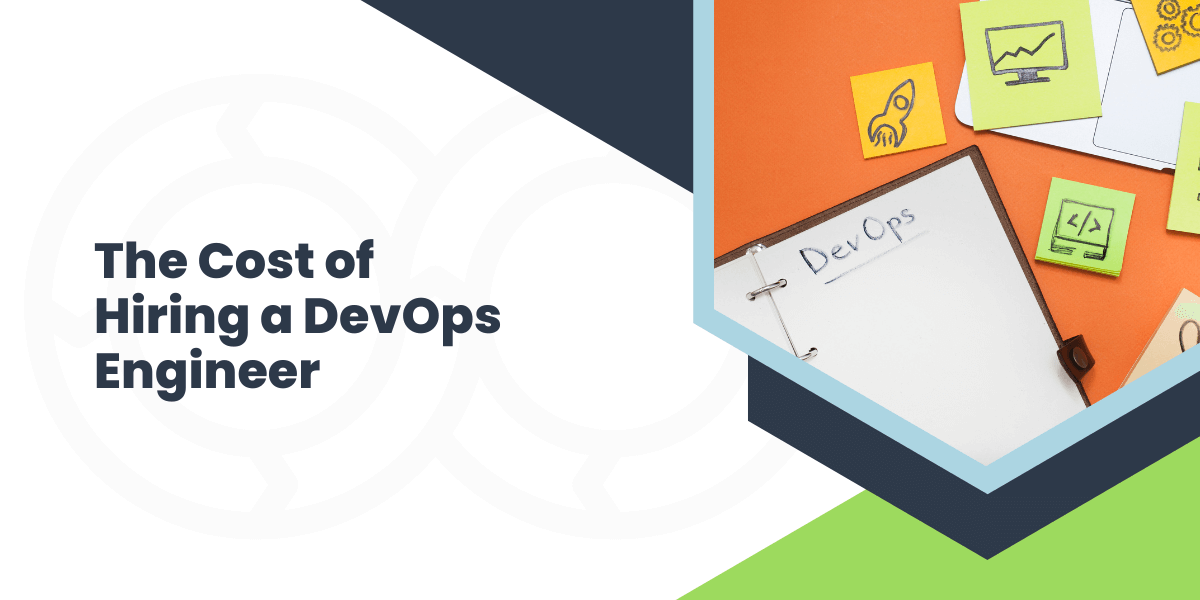
Understanding the cost implications of hiring DevOps engineers is essential for organizations considering this investment. DevOps engineers are highly sought-after professionals, commanding competitive salaries. However, there are opportunities to optimize costs by exploring outsourcing options.
DevOps engineers are among the highest-paid developers, earning an average annual salary of around $160,000 in the United States. This figure showcases the premium organizations are willing to pay for experienced DevOps professionals. This translates to an average monthly salary range of $6,000 to $8,000. While the salaries of DevOps engineers can be substantial, organizations can explore cost-saving opportunities through outsourcing.
Hire Devops Experts Engineers With Echoinnovate IT
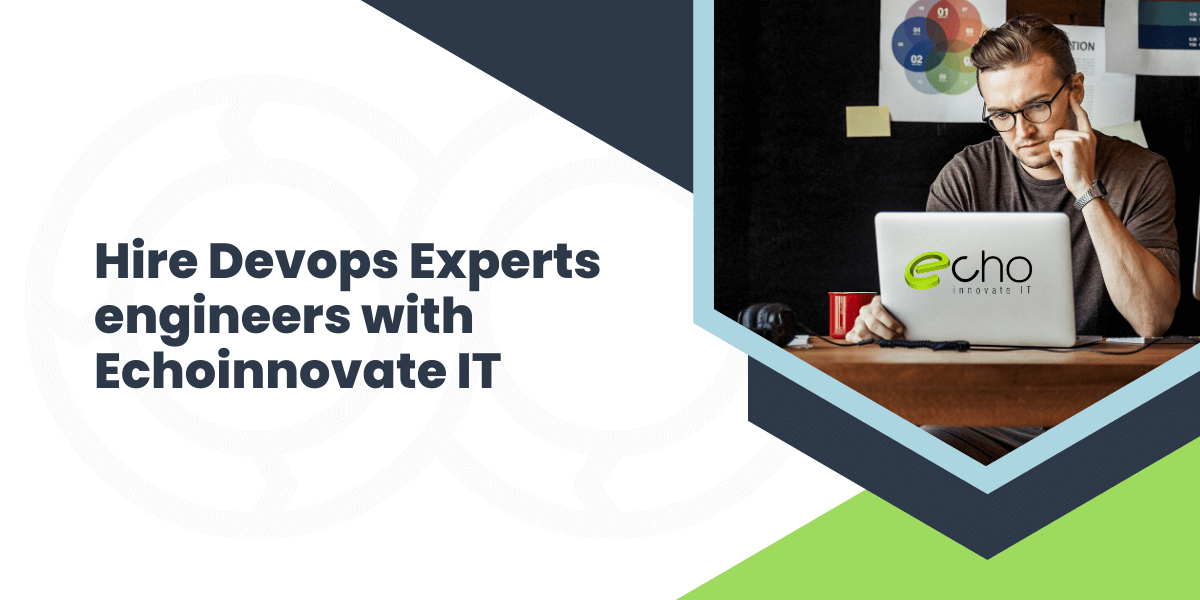
Echoinnovate IT boasts a team of highly skilled DevOps engineers with extensive expertise and industry experience. Their professionals deeply understand DevOps principles, tools, and best practices. By partnering with echo innovate IT, you gain access to top-notch talent who can leverage their expertise to transform your DevOps initiatives.
Echoinnovate IT understands that every organization has unique requirements. They offer tailored DevOps development services that align with your business objectives, whether you’re looking to build a DevOps team from scratch, augment your existing team, or address specific project needs. Their flexible engagement models ensure you get the right resources at the right time, empowering you to scale your DevOps operations effectively.
Echoinnovate IT’s DevOps engineers possess a diverse range of technical skills that cover the entire DevOps ecosystem. From infrastructure automation and configuration management to continuous integration/continuous delivery (CI/CD) and cloud platforms, Echoinnovate IT’s experts excel in various areas. Their comprehensive skill set allows them to seamlessly integrate into your organization and contribute to your DevOps success.
Conclusion
Hiring a DevOps engineer is essential for organizations seeking to optimize software delivery, foster collaboration, and drive innovation. These professionals bridge the gap between development and operations teams, align goals, and streamline processes to enhance efficiency and quality. With their expertise in automation, infrastructure management, and continuous improvement, DevOps engineers bring immense value to organizations across industries. Additionally, consider white label app development to tailor your applications for a branded and seamless user experience, ensuring a holistic approach to efficiency, quality, and collaborative success.
FAQs
Why do I need to hire a DevOps engineer?
What skills and qualifications should I seek in a DevOps engineer?
How can I assess a candidate's proficiency in DevOps tools and technologies?
What practical ways to attract and retain top DevOps engineering talent?
To attract and retain top DevOps engineering talent, consider the following strategies:
- Offer competitive compensation packages that align with market rates.
- Provide opportunities for professional growth and continuous learning.
- Foster a collaborative and inclusive work environment.
- Encourage experimentation and innovation within the DevOps culture.
- Implement flexible work arrangements and work-life balance initiatives.
- Recognize and reward exceptional performance and contributions.



